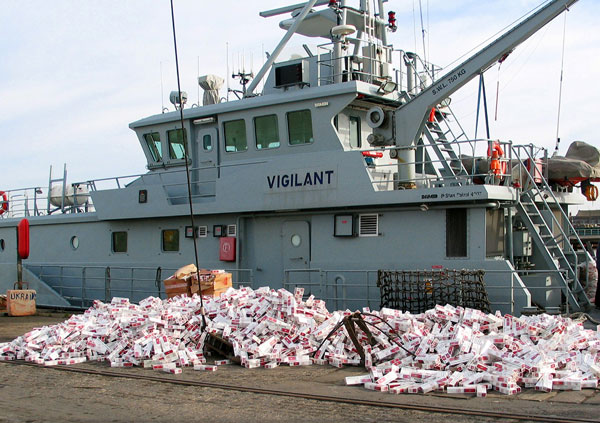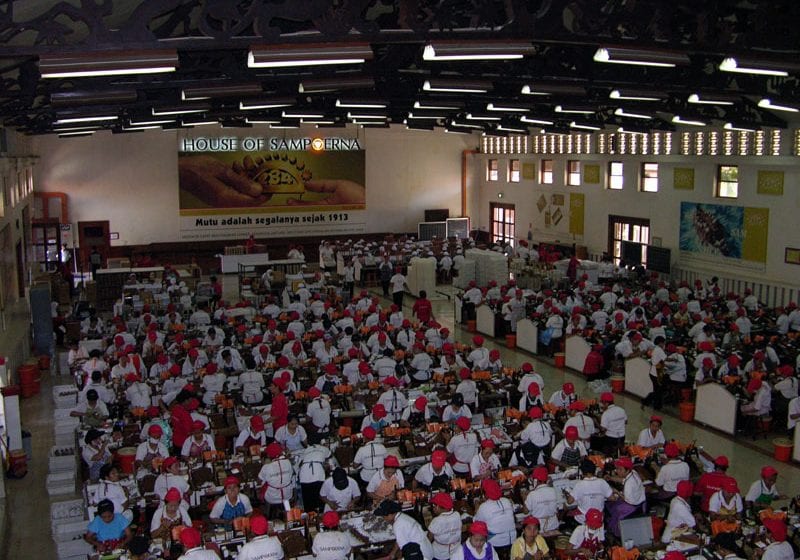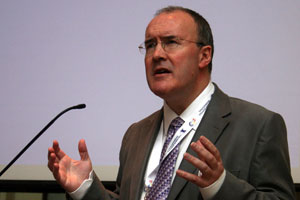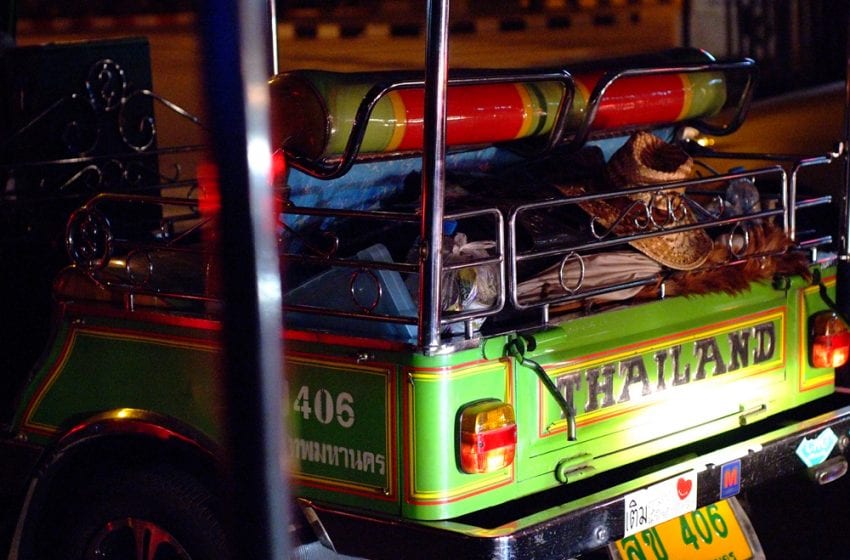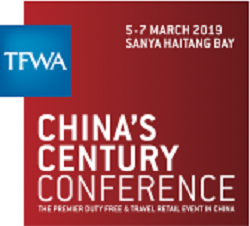The illegal trade in cigarettes has cost GCC (Gulf Co-operation Council) governments $210 million in ‘lost’ revenue since excise tax was introduced in the region last year, according to a story in the Arabian Business magazine citing a report attributed to Philip Morris International (PMI).
The report, which was based on research carried out in collaboration with Oxford Economics, was aimed at monitoring consumption, sales and ‘lost’ tax revenues as a result of the illegal trade.
The story said that the share of the overall cigarette market taken by illicit products during the first half of 2018 stood at 5.3 percent, up from 1.6 percent – presumably during the first half of 2017.
Part of the reason for this rise is because cigarette consumption has dropped overall in the region.
Saudi Arabia, with 6.6 percent, has the highest level of illegal sales, while Kuwait, which has some of the cheapest cigarettes in the region, has the lowest level of illegal sales, 1.0 percent.
Cigarette consumption in Saudi Arabia fell from 34.0 billion in 2015 to 27.5 billion in 2017 but illicit consumption increased there from 484 million cigarettes in 2016 to 571 million cigarettes in 2017.
Category: Taxation

Illegal trade up in GCC

U-turn on tax increases
The Indonesian government has canceled its plan to increase excise taxes on tobacco and tobacco products in 2019, according to a story in the Jakarta Post.
In addition, the government has postponed its plan to simplify excise tax.
The cancellation and postponement mean that the 2019 cigarette excise tax will remain similar to that of this year.
The government made the decision on Friday during a cabinet meeting attended by President Joko “Jokowi” Widodo.
The National Kretek Preservation Committee (KNPK) was said to have welcomed the government’s move for accommodating the aspirations of stakeholders in the tobacco industry.
“The industry has been under pressure because of increases in the tobacco excise tax over the last few years,” said KNPK co-ordinator Azami Mohammad on Monday, as reported at kontan.co.id.
But the Indonesian Consumers Foundation (YLKI) chairman Tulus Abadi criticized the government’s decision to cancel the cigarette tax hike, saying that Jokowi had no vision on public health.
“This means that the government continues to allow people to be dependent on cigarettes,” he was quoted as saying in a story at tempo.co.
The government had initially planned to increase tobacco excise tax by about 10 percent and to simplify taxes, which are set at different levels for the various categories of cigarettes available on the Indonesian market.
Clearing the smoke
The Philippines’ Department of Health (DOH) is pushing for higher taxes on tobacco products to help fund the requirements of the Universal Health Care Bill, according to a GMA News story.
But the DOH Secretary Francisco Tiongson Duque said the proposal was aimed also at reducing the incidence of smoking in the country.
The Universal Health Care Bill has been approved by the Congress and Senate, and is now awaiting the president’s authorization.
The news story reported that a Pulse Asia survey in September had shown that 67 percent of Filipinos are in favor of higher taxes on tobacco – a figure that seems low given that 78.4 percent of Filipinos don’t smoke.
Duque said that if tobacco taxes were raised as proposed, the percentage of smokers in the country would drop from 21.6 to 15.7.
If a pack of cigarettes was taxed at P97, an estimated one million people would be saved from dying from smoking-related diseases.
Meanwhile, Dr. Gundo Weiler, the World Health Organization (WHO) Representative in the Philippines, said that one out of three Filipinos died before they reached the age of 70, most of them due to smoking.
Weiler said that the strategy of the DOH was a win-win situation that targeted more funds for health care, while, at the same time, reducing the population of smokers in the country.
Big tax rise proposed
A coalition of health-advocacy groups in the US state of Montana want cigarette taxes to rise by $2 a pack to help maintain an expansion of Medicaid, which is a joint federal and state program that helps with medical costs for some people with limited income and resources.
According to a story by Eric Whitney for New Hampshire Public Radio, Montana legislators
expanded Medicaid by a very close vote in 2015.
The measure passed with the condition that the expansion of Medicaid eligibility in the state would expire in 2019 unless lawmakers voted to reapprove it. And once it expired, people who benefited from Medicaid under the expansion would lose that benefit.
Fearing legislators might not renew funding for Medicaid’s expanded rolls, Montana’s hospitals and other health advocacy groups came up with a ballot measure to keep it going with funds generated by a tobacco tax.
Whitney said in his report that the measure, which is on today’s ballot, became the most expensive ballot measure race in Montana’s history – drawing more than $17 million in opposition funding from tobacco companies alone, and in a state with fewer than 200,000 smokers.
Most of that money had come from cigarette maker Altria, he said, and, according to records from the National Center for Money in Politics, that amount was more than Altria had spent on any state proposition nationwide since the center started keeping track in 2004.
Amanda Cahill, who works for the American Heart Association and is spokesperson for Healthy Montana, the coalition backing the measure, said coalition members knew big tobacco would fight back.
“We poked the bear, that’s for sure,” Cahill said, though she added that the measure had been introduced not with the intention of stirring up trouble, but because it was the right thing to do.
If ballot initiative I-185 passes, it will mean an additional $2 per pack tax on cigarettes, and a tax on other tobacco products. It would also levy a tax on electronic cigarettes, which are currently not taxed in Montana.
Nancy Ballance, a Republican representative in the Montana state legislature opposes the measure.
“In general, I am not in favor of what we like to refer to as ‘sin taxes,’ ” Ballance says. “Those are taxes that someone determines should be [levied] so that you change people’s behavior.”
It's the smoker's burden
India’s Group of Ministers within the Goods and Services Tax (GST) Council are being urged to increase the tax on tobacco products to help shore up the country’s disasters-remediation revenue, according to a story in the latest issue of the BBM Bommidala Group newsletter.
Public health groups, doctors and economists are said to be calling for the imposition of the additional tax on all tobacco products, including bidis, to address ‘the crisis and generate funds for the rehabilitation of the people of Kerala affected by recent floods’.
Currently, the tax on bidis is said to amount to 22 percent, while that on cigarettes is 53 percent and that on smokeless tobacco is 60 percent.
The World Health Organization recommends that tobacco-product excise taxes should be at least 75 percent.
Meanwhile, a panel of state finance ministers set up to consider a disaster tax within the GST to help states hit by natural calamities has decided to seek the response of all states on the matter.
It is probably as well that India is looking into raising funds for mitigating the effects of disasters natural or otherwise. The World Health Organization says that the country has nine of the world’s 10 most-polluted cities, as calculated on PM2.5 (fine particulate matter) levels in the air.
Call for duty freeze
Campaigners have urged the UK Chancellor Philip Hammond to freeze tobacco duty when he delivers his autumn budget statement on October 29.
Simon Clark, director of the smokers’ group Forest said today that tobacco duty had been rising for years because of the so-called tobacco tax escalator.
Today, more than 80 percent of the retail price of cigarettes and rolling tobacco went to the government.
And a further increase in tobacco duty would once again hit those who could least afford it, including the elderly and the low paid.
“As well as forcing some people further into poverty, it will inevitably encourage others to buy their tobacco abroad or on the black market at home,” Clark said.
“This will hit legitimate retailers and the government will lose revenue; so no-one wins apart from criminal gangs and illicit traders.”
Calling for a freeze on tobacco duty, Clark said that while smoking might not be a healthy lifestyle choice, tobacco was a legal product and targeting smokers with punitive taxation was unfair on consumers and retailers.
“Fair’s fair,” he said. “A freeze on tobacco duty is long overdue and would be welcomed by millions of smokers who are tired of being singled out by successive governments.”
Winning slowly but steadily
The solution to failure is not to redouble your efforts, but to change course, according to a story by Sinclair Davidson published in The Nation.
Davidson, who is a professor of economics at RMIT University in Melbourne, Australia, said that, during the past 10 years, Thailand had attempted to curb smoking by enlarging the size of picture health warnings on cigarette packs repeatedly. Now, the gruesome photos covered up to 85 percent of packs, yet the number of Thai smokers was increasing.
‘This incongruence ought to give Thai authorities pause to consider new ways to cut smoking,’ he said.
‘The most successful policies globally have usually been slow but steady – public education about health effects tends to discourage older smokers while cost and taxation tend to discourage youth from taking up the habit.’
Davidson said a better solution for Thailand would be to emulate Japan’s emphasis on education, teaching children from an early age about the dangers of smoking.
‘It is not a quick fix, of course,’ he said. ‘But if Thailand wants to lower the prevalence of smoking it should not follow the fashionable, but failed, plain packaging policies of Australia, France and the UK.’
But the UK was seen to provide one positive example. ‘The single largest contributor to reduced smoking rates in the UK – until the failed plain packaging policy was adopted – was the mainstreaming of electronic nicotine delivery devices,’ he said. ‘Alternate mechanisms to deliver nicotine to smokers sees many smokers substitute away from combustible tobacco products to safer products and in some cases to quitting altogether.’
PMI supports protocol
Philip Morris International said today it was publishing a position paper supporting an international protocol aimed at eliminating the illegal trade in tobacco products.
The first Meeting of the Parties (MOP1) to the Protocol to Eliminate Illicit Trade in Tobacco Products, which is a protocol of the World Health Organization’s Framework Convention on Tobacco Control, is taking place in Geneva this week.
‘With approximately one out of 10 cigarettes smoked globally stemming from illicit trade, Parties to the Protocol should take a collaborative approach to tackling the problem of illicit trade,’ PMI said in a note posted on its website. ‘Available on PMI’s website, the position paper proposes effective strategies for tackling the illicit tobacco trade, aligned with key provisions of the Protocol.’
Meanwhile, Alvise Giustiniani, vice president of illicit trade prevention at PMI, was quoted as saying the Protocol was a significant and crucial global tool to tackle the serious issue of the “illicit tobacco trade”. “We strongly support the objectives and principles of the Protocol, as well as the Meeting of the Parties which is an important step in tackling the multi-faceted and highly complex problem of illicit tobacco trade,” he said
‘The Protocol brings together countries against the scourge of illicit tobacco trade, and it will have a key role to play in helping to defeat the illegal tobacco market,’ the position paper says. ‘Collaboration will be a key element of its success: national governments, international organizations and civil society working to fight illicit tobacco trade together.’
PMI said that, in its view, effective strategies for tackling the ‘illicit tobacco trade’ must be articulated across the following six pillars:- ‘Product tracking and tracing based on open and recognized international standards
- ‘Effective control and monitoring of Free Trade Zones
- ‘Enhanced international co-operation
- ‘Application of deterrent sanctions to illicit traders
- ‘Licensing regimes that focus on tackling illicit trade
- ‘Meaningful due diligence and record-keeping requirements.’
PMI has a dedicated website StopIllegal https://www.stopillegal.com/

Industry selling 'harm'
An updated edition of the Asean Tobacco Control Atlas captures in detail the continuing battle waged by the tobacco industry against public health, according to an opinion piece by the Southeast Asia Tobacco Control Alliance (SEATCA) published in The Nation, Thailand.
“The good news is that countries are fighting back to protect health and save lives,” Dr. Ulysses Dorotheo, executive director of SEATCA, was quoted as saying. “The bad news is that progress isn’t fast enough.”
Among Asean countries, male adult smoking prevalence is highest in Indonesia, at 66.0 percent, and lowest in Singapore, at 21.1 percent.
All 10 Asean countries have imposed graphic health warnings on cigarette packs, and four of these countries require huge warnings: Thailand (85 percent front and back of the pack), Brunei, Laos and Myanmar (75 percent).
Singapore and Thailand are said to be in the advanced preparatory stages of requiring standardized tobacco packaging.
Tobacco tax policies have been ‘strengthened’ in Brunei, Indonesia, Myanmar, the Philippines, Singapore and Thailand, and these have helped to reduce the affordability of tobacco products, according to the SEATCA piece.
However, cigarette prices remained affordable and relatively low (under $1 a pack) in Cambodia, Laos, Myanmar and Vietnam.
The tobacco industry continued to escape stringent regulation by interfering at all levels of tobacco control policy development and implementation, because only four Asean countries – Indonesia, the Philippines, Singapore and Thailand – had taken steps to protect their public health policies from such interference.
The tobacco industry was said to be constantly inventing new ways to sell harm through novel marketing schemes.
And tobacco companies were said to be producing electronic cigarettes and promoting them as less harmful than conventional cigarettes and as smoking cessation devices. Only four Asean countries – Brunei, Cambodia, Singapore and Thailand – had banned the sale of ‘all types of heated tobacco products, e-cigarettes, shisha and water pipes’.
Hainan to host TFWA event
The TFWA (Tax-free World Association) says that the fourth TFWA China’s Century Conference is due to be held in Hainan on March 5-7.
The conference, organized with the support of the Asia Pacific Travel Retail Association, will be held at the Grand Hyatt Sanya Haitang Bay hotel.
In a press note issued on Tuesday, the TFWA said that Hainan, one of China’s most popular tourist destinations, was home to a thriving ‘offshore duty-free industry’.
Erik Juul-Mortensen, TFWA president, was quoted as saying that 2019 would see the 40th anniversary of duty-free in China, a country that had been one of the industry’s main growth drivers for much of that time.
“For anyone looking to understand and maximise the opportunity of this fast evolving and vast market, this is a must-attend event,” he said.
“After a fantastic few days in Guangzhou in 2017, we are delighted to be returning to China in 2019 and visiting Hainan, a hugely important location for many of our members and business partners.”
The most recent TFWA China’s Century Conference, held in Guangzhou in March 2017, was said to have seen visitor numbers up by six percent. Delegates included representatives from more than 200 companies, from China and beyond.
The TFWA said more information about the conference and its networking and social program would be available at www.tfwa.com.

